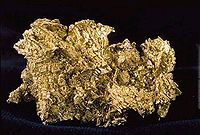Mining industry of Romania

Romaniaranks tenth in the world in terms of the diversity of minerals produced in the country. Around 60 different minerals are currently produced in Romania. The richest mineral deposits in the country are halite (sodium chloride).
Other natural resources include:coal,ironore,copper,chromium,uranium,antimony,mercury,gold,barite,borate,celestine(strontium),emery,feldspar,limestone,magnesite,marble,perlite,pumice,pyrites(sulfur) andclay.
Roșia Montanăarea is the largest gold deposit in continentalEurope,estimated at over 300 tons ofgoldand 1,600 tons ofsilver,having a value of $3 billion.[1]
Conflicts[edit]
Mining projects in Romania have resulted inenvironmental conflicts,resulting in the cancellation of some high-profile projects. For example, development of theRoșia Montană Projectwas cancelled, afterwidespread protests in 2013.In 2016, the owner of that project,Gabriel Resourcessought $4.4 billion in damages from Romania at theWorld Bank,claiming that Romania unfairly blocked the company's $2 billion project.[2][3]
TheRovina minewas also opposed by environmental andenvironmental justicegroups.[4]That project was stalled in 2021.[5]
Anti-mining organisations haveattempted to ban gold cyanidation in Romania,because this process has resulted inenvironmental disasters,such as the1971 Certej dam failureand the Baia Mare cyanide spill in 2000.
Baia Mare cyanide spill[edit]

The2000 Baia Mare Cyanide spillwas a leak ofcyanidenearBaia Mare,Romania,into theSomeș Riverby thegold miningcompanyAurul,a joint-venture of theAustraliancompany Esmeralda Exploration and the Romanian government.
The polluted waters eventually reached theTisza Riverand then theDanube,killing large numbers of fish inHungary,Serbia,andRomania.The spill has been called the worstenvironmental disasterin Europe since theChernobyl disaster.[6]Production[edit]
Romania's mineral production is adequate to supply its manufacturing output. Energy needs are also met by importing bituminous and anthracite coal and crude petroleum. In 2007 approximately 13.4 million tons of anthracite coal, approximately 4,000 tons of tungsten, 565,000 tons of iron ore, and 47,000 tons of zinc ore were mined. Lesser amounts of copper, lead, molybdenum, gold, silver, kaolin, and fluorite also were mined.
In 2004, according to Europaworld, the main mining industries in thousand metric tons were:[7]
- brown coal (includinglignite): 31,592
- crude petroleum:5,465
- iron ore:275
- copper786.8
- leadconcentrates: 15
- zincconcentrates: 18.6
- salt(unrefined): 2,398
- natural gas(million cubic meters): 13,290
Related industries[edit]
Romania is an oil producer, but the level of production is not enough to make the country self-sufficient. As a result, it is a net oil and gas importer.
The pipeline network in Romania included: 1,738 km for crude oil, 2,321 km for petroleum products and 708 km for natural gas, in 1999. Several major new pipelines are planned, especially theNabucco PipelineforCaspianoilfields, the longest one in the world.
References[edit]
- ^"Roșia Montană",Dezvaluiri.go.ro
- ^Neil Buckley, Romania hit by $4.4bn damages claim over stalled gold mine project. Financial Times, June 29 2017.
- ^Kit Gillet. Romania hits Canadian firm with $9m 'retaliatory' tax bill over gold mine. The Guardian, 14 July 2017.
- ^EJOLT."Rovina gold and copper mining, Romania | EJAtlas".Environmental Justice Atlas.Retrieved2023-04-16.
- ^Review, Energy Industry (2021-11-26)."Environmental Activists Derail Euro Sun Mining's Plans for EU's Largest Open-pit Gold and Copper Mine Project in Romania".Energy Industry Review.Retrieved2023-04-16.
- ^"Death of a river".BBC.February 15, 2000.
- ^"Romania".The Europa World Year Book.Vol. 2 (48 ed.). London and New York: Routledge. 2007. pp. 3734–3759.
